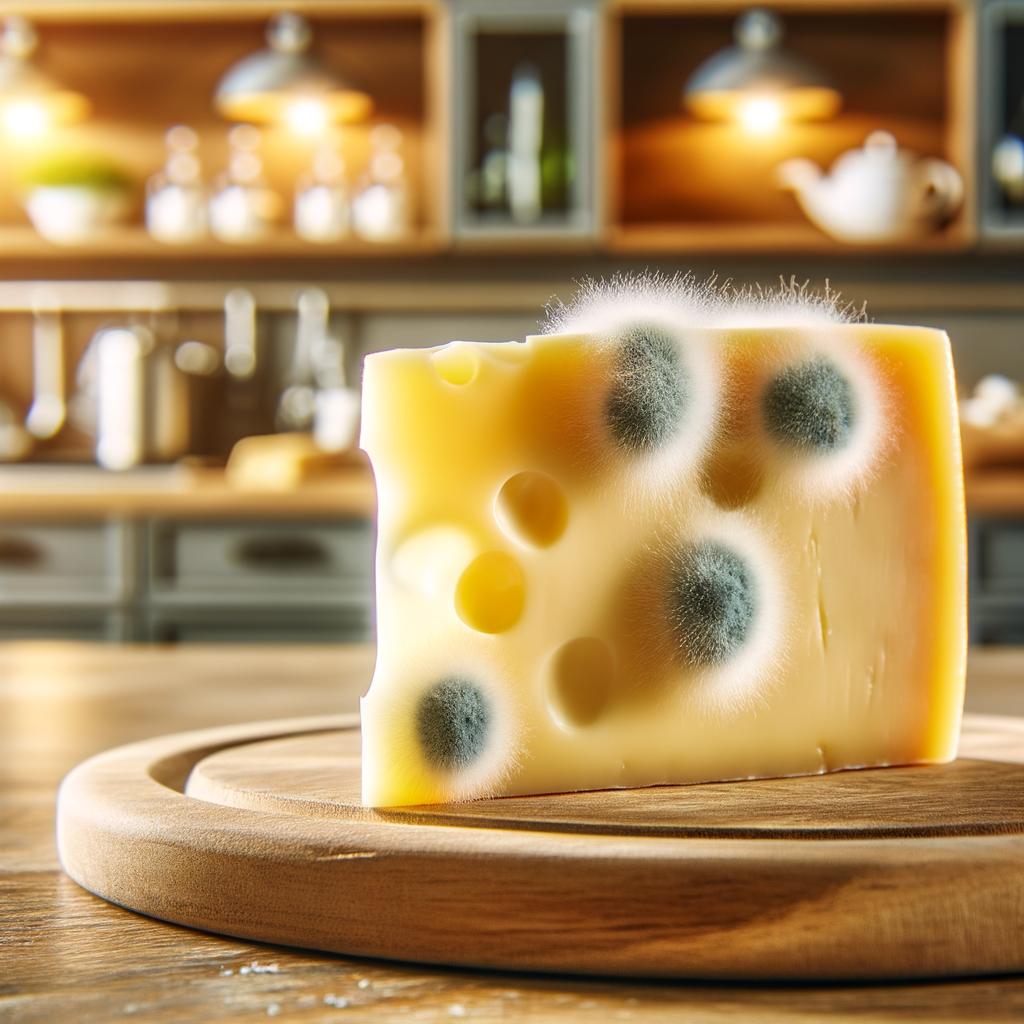Cheese Mold

Description
Cheese mold is an unsung hero in the world of gastronomy, often misunderstood, but essential in the creation of some of the world's most beloved cheeses. These microscopic fungi, invisible to the naked eye, paint a colorful palette on the rind of cheeses, ranging from bloomy whites, bluish greens, to rustic oranges. The texture they grant varies with the type of mold, from the velvety softness of Camembert's Penicillium camemberti to the crumbly nature of Roquefort's Penicillium roqueforti. Their flavor profile is equally diverse, bestowing nutty, earthy, and even spicy notes, adding depth and complexity to the cheese. What sets cheese mold apart is its ability to transform a simple curd into a gourmet masterpiece, each type rendering a unique character to the cheese.
Primary Uses
Cheese mold is primarily used in the cheese-making process, contributing to the maturation and flavor development of the cheese. It is a key player in the creation of renowned cheeses like Brie, Camembert, Stilton, and Gorgonzola, to name a few. Apart from cheese-making, certain cheese molds are used in the pharmaceutical industry to produce antibiotics, such as Penicillin.
History
The history of cheese mold is as old as cheese itself, tracing back to the ancient civilizations of Egypt and Greece, where cheese was often aged in caves, naturally inoculating them with mold spores. The caves of Roquefort-sur-Soulzon in France are legendary, where according to an old tale, a shepherd left his lunch of bread and cheese in a cave. When he returned months later, he found the cheese had transformed into the first Roquefort, thanks to the mold. Over time, cheese makers have learned to harness the power of these molds, cultivating them in controlled environments to consistently produce a variety of cheeses.
Nutritional Information
Cheese mold, particularly the types used in blue cheeses, are a source of probiotics, contributing to gut health. They also play a role in breaking down the lactose in cheese, making it more digestible for those with lactose intolerance. However, it's worth noting that not all molds are beneficial. Certain types can produce mycotoxins, which can be harmful if consumed in large quantities. Therefore, it's crucial to consume mold-ripened cheeses that have been prepared under controlled, hygienic conditions. When compared to cheese without mold, mold-ripened cheese often has a stronger flavor and unique texture, making it a gourmet delight for cheese lovers.

